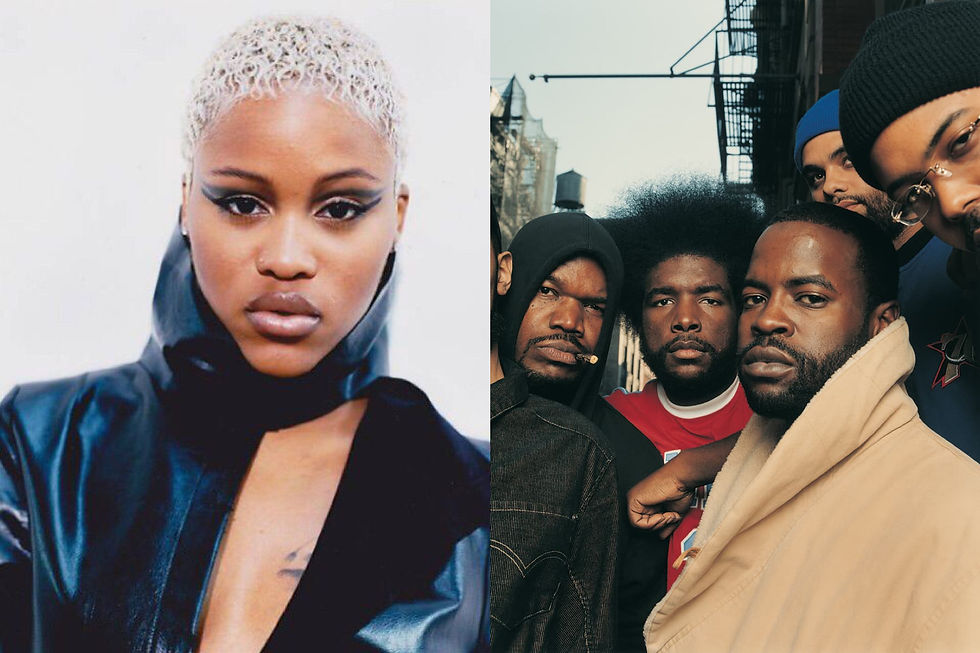Oliver "Power" Grant: The Visionary Behind Wu-Tang Clan & Wu-Wear's Empire
- Nolazine

- Jul 23, 2025
- 2 min read

Oliver “Power” Grant is much more than a behind-the-scenes figure—he's a visionary who helped architect the Wu-Tang Clan’s rise from Staten Island’s Park Hill projects to a global hip-hop and fashion phenomenon. As an entrepreneur, executive producer, and streetwear pioneer, Grant has built an enduring legacy at the intersection of music, culture, and business.
Growing up in Staten Island, Grant was a childhood friend of Divine—older brother of Wu-Tang’s de facto leader, RZA. This early connection placed him in the center of the Wu-Tang movement before it exploded into mainstream consciousness. He believed in the group’s potential so deeply that he made a substantial financial investment to help jumpstart their journey. His drive and commitment earned him the name “Power” from two of Wu-Tang’s founding members—a fitting title for someone who consistently turned vision into reality.
In 1995, Grant broke new ground by launching Wu Wear, one of the first artist-driven streetwear clothing brands. What began as a mail-order hustle selling Wu-Tang logo gear became a national fashion movement. Despite initial resistance from clothing manufacturers hesitant to extend credit to a young entrepreneur, the group’s rapid rise to platinum status turned skeptics into believers. Soon after, Grant opened the first Wu Wear store on Victory Boulevard in Staten Island and set up operations in Manhattan’s garment district to manage distribution. At its height, Wu Wear was available in major retailers like Macy’s, Rich’s, and d.e.m.o., generating over $25 million annually.
However, success brought challenges—namely, a flood of counterfeit Wu-Tang merchandise. In response, Grant discontinued Wu Wear and rebranded as Wu-Tang Brand in 2008. The spirit of the brand lived on, and in 2017, Grant and RZA partnered with Live Nation Merchandise to relaunch the original clothing line. As “Historic Creative Consultant,” Grant ensures the line remains true to Wu-Tang’s raw energy and authenticity, while introducing it to a new generation of fans.
Grant’s entrepreneurial spirit wasn’t limited to fashion. In 1999, he brought Wu-Tang’s martial arts mystique to the gaming world with Wu-Tang: Shaolin Style for PlayStation. The game featured fighting mechanics inspired by kung-fu cinema and characters modeled after the group, once again pushing boundaries and expanding hip-hop’s reach into new cultural territory.
His innovative efforts have made Oliver “Power” Grant a trailblazer in hip-hop business circles. He opened doors for countless artists to move beyond music into branding, fashion, gaming, and more—long before it became standard industry playbook. In a 2013 interview, Grant emphasized Wu-Tang’s mission of breaking down doors and proving that hip-hop could thrive in boardrooms as well as on stages.
Grant’s influence has even reached Hollywood. In Hulu’s acclaimed series Wu-Tang: An American Saga, actor Marcus Callender portrays him, bringing Grant’s vital role in the Wu-Tang saga to a broader audience.
From the streets of Staten Island to the global fashion arena and gaming industry, Oliver “Power” Grant has helped redefine what’s possible for hip-hop entrepreneurs. His legacy is a powerful reminder that real vision doesn’t just chase trends—it creates them.






Comments